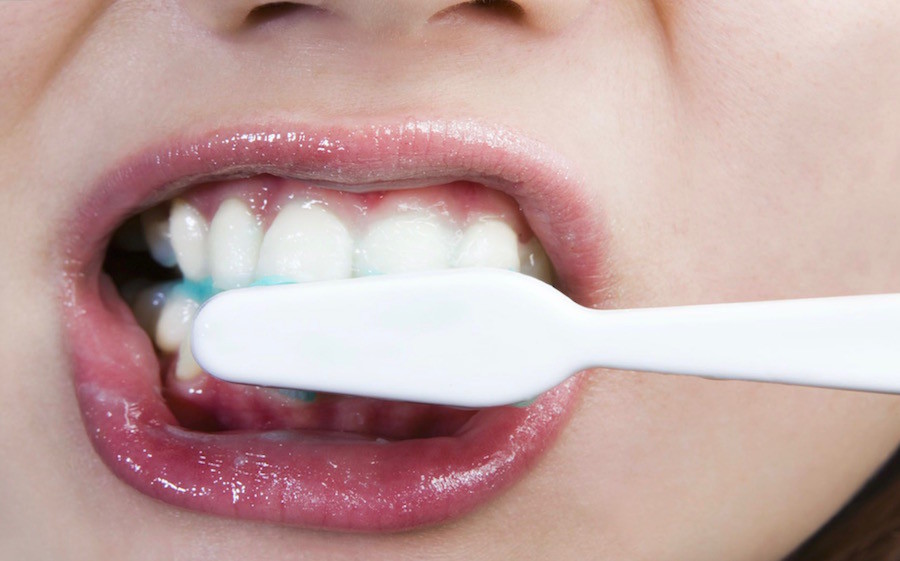
Gum recession (a condition which exposes the roots of your teeth) is one of the biggest smile killers, and its treatment is the most impactful among the five steps to improving the appearance of your gums. While the primary culprit for causing gingival recession is poor oral hygiene and subsequent gum disease, there are many people out there who are experiencing the condition even though they practice smart dental care at home. If you are among this lot, you may be baffled as to why you are left suffering this embarrassing periodontal malady. Today, we’re here to shed some light on the matter.
5 Things Besides Gum Disease That Can Lead to Visible Gum Recession
1. Inherited Factors
Gums that appear larger than normal and expose the roots of your teeth may be the result of your genes. The position of your teeth and thickness (or lack thereof) of your gums may have been passed down from generations, to no fault of your own.
However, hereditary causes are not always simply aesthetic, as your genetics may also make you more susceptible to periodontitis, which can directly result in gum recession.
2. Aggressive Oral Hygiene
Some people are too passionate about brushing and flossing their teeth, either doing so too frequently, too aggressively, or both. Vigorous tooth brushing and flossing is a surprisingly common cause of gum recession, and it can even have a compounding affect, given that someone with an aggressive habit may cause receding gums, take notice, and brush/floss even harder thinking that they are applying a solution to the problem. One way to identify that this may be the root cause (no pun intended) is to check if gum recession is more evident on one side of your mouth. If you’re right-handed, you likely hold your toothbrush in your right hand and thus put more pressure on the left gums, or vice versa.
In addition, the use of a hard bristled toothbrush and harsh floss, even under normal methods, can contribute to periodontal damage.
3. Bad Dental Treatment
Prior dental work may have contributed to your receding gums. This is not typical, but it can happen, especially for those who have received braces in the past. Poorly fitted braces may have stressed your gums, leading them to detach from your teeth. While there is a lot of debate on whether or not orthodontic treatment that moves teeth in a direction where the bone or gum tissue is thin can lead to gum recession, it’s worth looking into if you’ve considered and dismissed all other potential causes of your own. That being said, abnormal tooth positioning can contribute to gum recession so by no means should you fear a visit to an orthodontist – just make sure you’re seeing a reputable one.
4. Bruxism
Teeth grinding (bruxism) makes the rounds quite a bit here on our dental specialist blog. Not only does grinding your teeth destroy irreplaceable tooth enamel, it sets the table for all sorts of dental ailments, gum recession included. How does this occur? The act and corresponding motions of teeth grinding puts pressure on your gums which directly contributes to the concern. In addition, grinding your teeth can also make them loose in their sockets, generating deep gingival pockets where bacteria will collect and promote the potential for gum disease. Simply put, if you suffer from bruxism, there is a good chance that you have receding gums today or on the near horizon. Seek treatment immediately before it gets worse.
5. Oral Trauma
An accident or event may have caused an acute injury in your oral cavity that resulted in teeth coming detached from your gums and left you with exposed roots. The visible impact may not be immediate, which is why you may not have realized it until months or even years down the road, as conditions worsened over time, especially when compounded by any of the other causes addressed above.
However, there are times when trauma may not be accidental, albeit still inadvertent. For instance, people with pierced lips run the risk of gum recession at the place where the jewelry (lip ring) rubs along the gum line, resulting in wear and tear that can cause permanent damage to their gums. Of course, lip piercings and other intentional modifications in the area (i.e. a piercing in the cheek, etc.) can open the gateway to a variety of other oral health concerns that can contribute to today’s topic. If you have a lip piercing (or similar) you will want to pay extra close attention to your oral hygiene and how the metal or plastic (etc.) within interacts with your oral cavity.
As you can see, there is a lot more than poor oral hygiene that can cause gum recession. Thankfully, we live in an era where very effective solutions exists, such as the minimally invasive procedure known as the pinhole surgical technique (PST). Learn more about the benefits of PST over traditional gum grafting, and be sure to contact Vancouver Dental Specialty Clinic with any questions you have about receding gum treatment.



